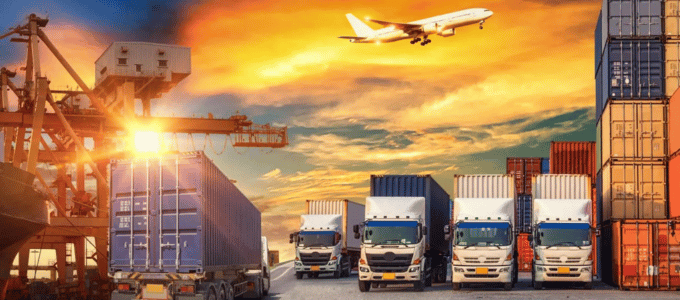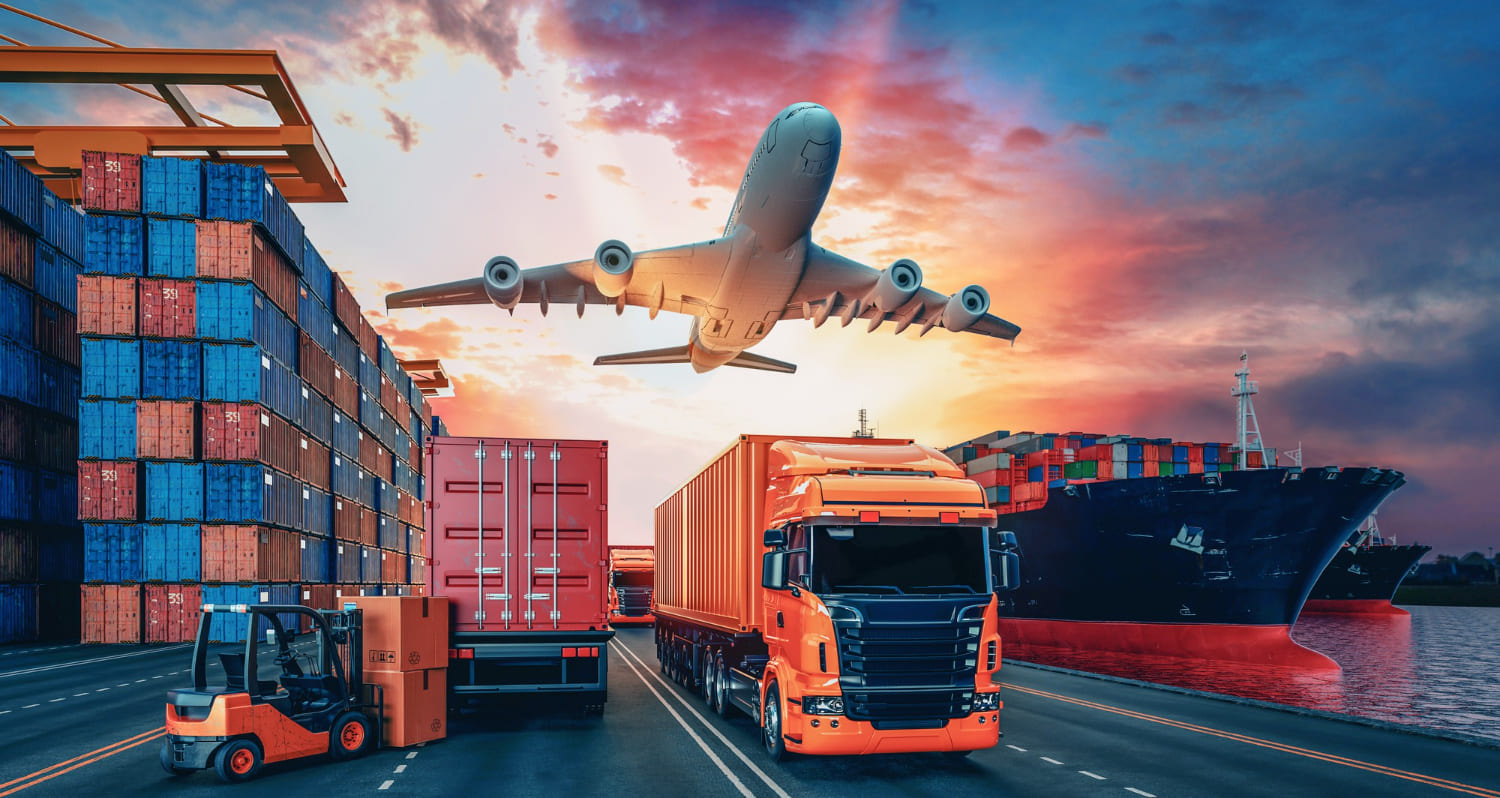What is Forward Logistics and Why it is Important
Forward logistics is the movement of goods from the point of origin to the point of consumption. It encompasses all the activities involved in getting goods from the supplier to the customer, including order fulfillment and warehousing.
However, in the complex spin of supply chains and the relentless flow of products from manufacturer to customer, forward logistics takes center stage. Often known simply as outbound logistics, it is the unacknowledged icon of commerce, producing the crucial movement of goods from the source to the destination. Imagine a world where products flow easily from the hands that create them to the homes and businesses that await their arrival. This is the realm of outbound logistics, where complex supply chains find their focal point. But what exactly is forward logistics?
At its core, forward logistics is the unseen machinery that powers the world of commerce. It powers the assurance that your online order reaches your doorstep, keeps store shelves stocked, and allows manufacturers to maintain uninterrupted production. So why is it so important in the system of business? In this blog, we’ll explore the intricate landscape of forward logistics, studying its components and uncovering why it’s an essential part of modern business operations. From its urgent role in customer satisfaction to its cost-saving potential and ability to meet the digital demands of today’s markets, forward logistics is the linchpin in the chain of efficient delivery. Join us as we solve not only what outbound logistics is but also why it’s unique for businesses operating in the fast-paced, interconnected world of commerce.
Introduction to Forward Logistics
Forward logistics is the process of moving goods from the point of origin (e.g., a supplier’s warehouse) to the point of consumption (e.g., a customer’s home or business). In simple words, we call it logistics, although it is also known as outbound logistics or supply chain management. However, sometimes a customer files for a return for many reasons. That’s when the process of “Reverse Logistics” starts.

Outbound logistics encompasses all the activities involved in getting goods from the supplier to the customer including order processing, packaging, warehousing, transportation, and distribution. However, within the broader factors of supply chain management, forward logistics is the link that bridges the gap between production and utilization. It takes charge of the final leg of the journey, ensuring that products reach their intended recipients efficiently and cost-effectively. If you’re looking for more insights into efficient supply chain management, explore our blog on “supply chain management tips” to enhance your logistics strategy.
Furthermore, forward logistics matters because businesses need to deliver their products to customers on time and in good condition. This is essential for maintaining customer loyalty and satisfaction. Additionally, outbound logistics can help businesses to reduce costs and improve efficiency.
In today’s competitive business environment, forward logistics is more important than ever. Businesses that implement effective outbound logistics strategies can gain a competitive advantage over their competitors.
The Components of Forward Logistics
Forward logistics is a complex process that involves several different components. These components collaborate to ensure that goods are delivered to customers on time and in good condition.
- Order Processing | The first step in forward logistics is order processing. This involves receiving orders from customers and then picking, packing, and shipping those orders. Depending on the size and complexity of the business, businesses can employ either a manual or automated process for order processing.
- Packaging and Labeling | Once orders have been picked, they need to be packaged and labeled. This ensures that the products are protected during shipping and that they can be easily identified by the customer.
- Warehousing | Warehousing is the process of storing goods until they are ready to be shipped to customers. This may involve tasks such as receiving goods from suppliers, storing goods in an organized manner, and picking goods.
- Transportation | Moreover, transportation is the process of moving products from the warehouse to the customer’s location. There are different transportation modes available, including sea freight, land freight, and air freight.
- Distribution | Distribution is the final step in forward logistics. This involves delivering the goods to the client’s location. Distribution can be done by the business itself, or it can be outsourced to a third-party logistics (3PL) provider.
These components of forward logistics work together to ensure that goods are delivered to customers on time and in good condition. By understanding the different components of forward logistics, businesses can develop more efficient and effective logistics strategies.
Benefits of Efficient Forward Logistics
Efficient forward logistics is the key to making a business work well. It brings lots of good things that spread through how things get from one place to another in a business. However, efficient outbound logistics can provide several benefits for businesses, including improved customer satisfaction, reduced costs, increased efficiency, and improved competitive advantage.

When goods are delivered to customers on time and in good condition, it leads to improved customer satisfaction and loyalty. This may lead to heightened sales and recurring customer engagement. Forward logistics can also help to reduce costs by optimizing shipping routes, negotiating shipping rates, and reducing inventory levels. Additionally, by streamlining the flow of goods through the supply chain, outbound logistics can help businesses improve efficiency and shorten lead times. In today’s competitive business environment, forward logistics is more important than ever. Businesses that implement effective forward logistics strategies can gain a competitive advantage over their competitors. Ultimately, it is not just an operational necessity; it’s an investment in customer loyalty, cost-effectiveness, and future growth.
Key Factors Influencing Forward Logistics
Efficient forward logistics rest on several key factors that can significantly influence the success of the entire process. Inventory management is a keystone, requiring businesses to strike a delicate balance between supply and demand. This is the process of tracking and managing inventory levels to ensure that goods are available when needed. There are different inventory management strategies that businesses can use.
The best strategy for a particular business will depend on several factors, including the type of products the business sells, the volume of products, and the business’s target market. Another key factor influencing forward logistics is the choice of transportation modes. There are a variety of different transportation modes available, including trucks, trains, ships, and airplanes. Choosing the most suitable method of transport is essential, considering factors such as delivery speed, cost efficiency, and the nature of the goods being shipped.
For instance, time-sensitive products might require air freight for speed, while bulk goods are often more cost-effectively transported by sea freight. Additionally, technology and automation are game-changers in the field of forward logistics. This can be used to streamline the outbound logistics process and improve efficiency. From advanced tracking systems that provide real-time visibility into shipments to digital documentation that simplifies paperwork, technology streamlines the entire process. Automation helps reduce human error, speeds up processing times, and enables businesses to respond more effectively to customer demands. For example, businesses can use warehouse management systems (WMS) to track inventory levels and pick and pack orders. Businesses can also use transportation management systems (TMS) to plan and optimize shipping routes. By effectively managing inventory, selecting the right transportation modes, and using technology and automation, businesses can improve the efficiency and effectiveness of their forward logistics operations.
Future Trends in Forward Logistics
Changing customer demands and technological advancements constantly drive the evolution of logistics. Here are three main trends that are shaping the future of forward logistics:
- Sustainability and Eco-Friendly Practices – Sustainability is becoming increasingly important to businesses and consumers alike. Pressure to reduce their environmental impact compels businesses, and consumers tend to choose products from businesses committed to sustainability. As a result, there is a growing trend towards sustainable and eco-friendly forward logistics practices. Businesses are using more sustainable transportation modes, such as electric vehicles and trains.
- Digital Transformation – Technology is also playing an increasingly important role in the outbound logistics industry. Businesses are using technology to automate tasks, streamline processes, and improve efficiency. Forward logistics is utilizing key technologies including warehousing management systems, transportation management systems, and AI.
- Globalization and Challenges – Globalization is another trend that is shaping the future of forward logistics. Businesses are increasingly sourcing products from around the world and selling them to customers around the world. One challenge is the need to transport goods over long distances. Another challenge is the need to comply with different customs regulations in different countries. Some businesses are using third-party logistics providers to help them manage their global supply chains. Whereas, other businesses are investing in their own global logistics capabilities.
These trends are shaping the future of forward logistics, emphasizing sustainability and the need to overcome the complexities. Businesses that adapt to these trends will be better positioned in the landscape of logistics. In the end, Super Middle East is your trusted partner in navigating the complexities of forward logistics. With our expertise, we ensure that your goods reach their destination efficiently, cost-effectively, and on time, empowering your business for success.


